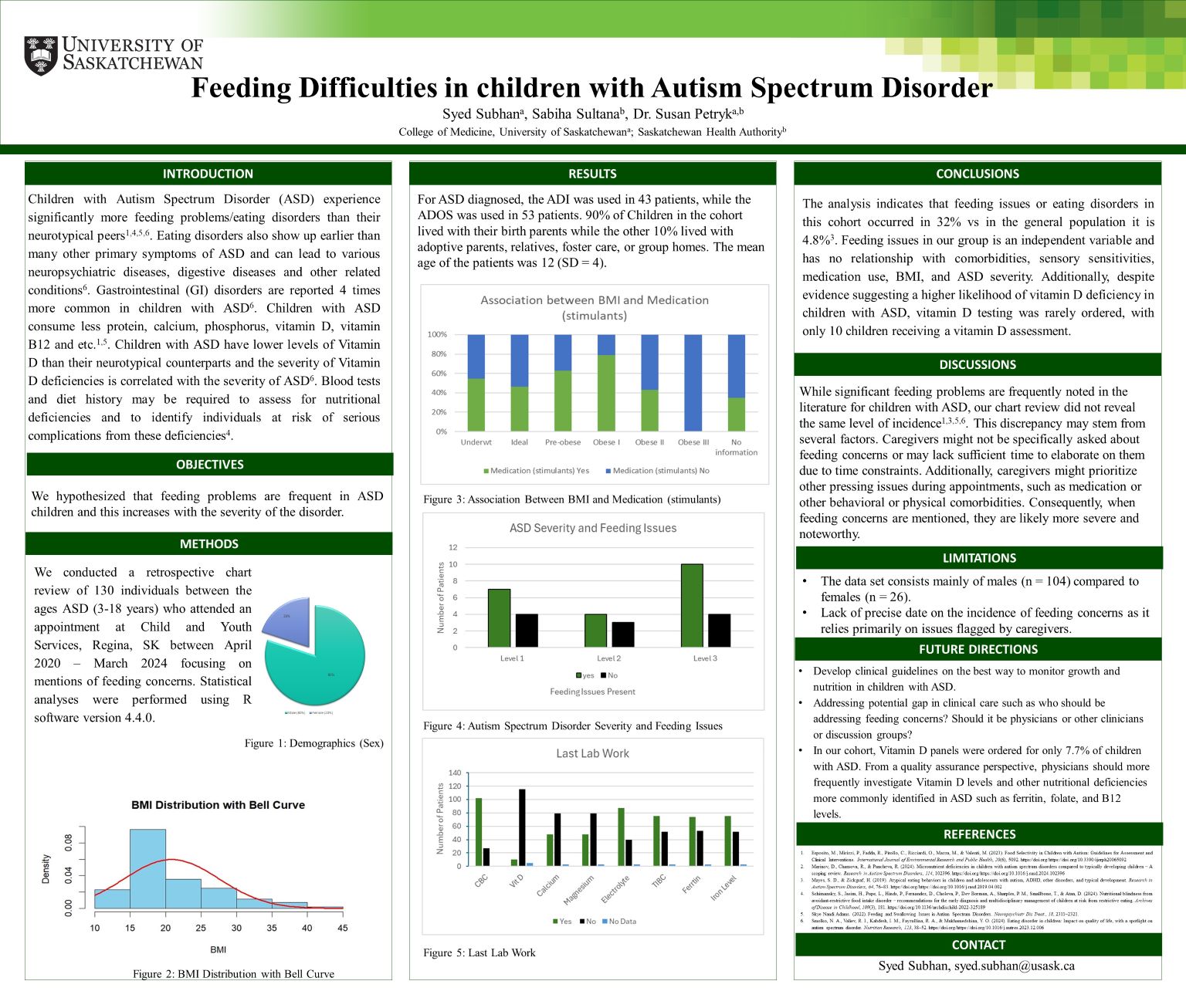
Feeding difficulties in children with Autism Spectrum Disorder
Syed Subhan
Introduction: Children with Autism Spectrum Disorder (ASD) experience significantly more feeding related problems than their neurotypical peers. Children with ASD may consume less protein, calcium, vitamin D, Vitamin B12, etc. The severity of Vitamin D deficiencies correlates with ASD severity. Blood tests and diet history may be required to assess nutritional deficiencies and to identify individuals at risk of serious complications from these deficiencies.
Methods: A retrospective chart review was conducted on 130 children with ASD (3-18 years) who attended an appointment at Child and Youth Services, Regina, SK between April 2020 – March 2024 focusing on mentions of feeding concerns. Data was collected on ASD severity, sensory issues, comorbidities and medication. Statistical analysis was performed using R software, version 4.4.0.
Results: Results showed no association between feeding issues and comorbidities, ASD severity (p=0.798), BMI (p= 0.418), sensory sensitivities (p=0.127). Comparisons between BMI and different medications also showed no association. Vitamin D lab work was only ordered in 7.7% of patients.
Conclusion: In this cohort, 32% of children with ASD had feeding issues significant enough to be mentioned in the medical record. This indicates this group with ASD may not experience more feeding difficulties than their peers (reported incidence of 4.8%).
